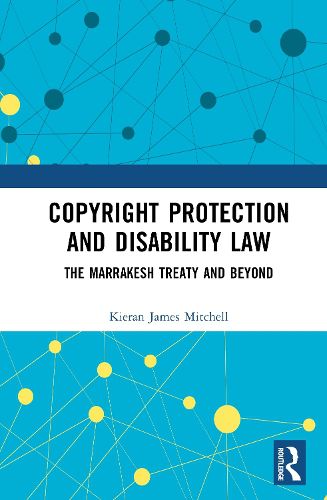Readings Newsletter
Become a Readings Member to make your shopping experience even easier.
Sign in or sign up for free!
You’re not far away from qualifying for FREE standard shipping within Australia
You’ve qualified for FREE standard shipping within Australia
The cart is loading…






This book provides a one-stop, comprehensive guide to the Marrakesh Treaty and its relation to copyright protection and disability law.
Beginning with an exploration of the origin and impact of the "global book famine", the book contextualises the role of copyright law in restricting access to the written word. Detailing the core philosophical underpinnings of the debate, the book offers new interpretive insights into the classic justifications of copyright protection through the lens of inclusivity. Additionally, models of disability and their influence over national copyright policies are explored. The social and human rights models of disability, combined with an inclusive interpretation of copyright justifications, are advocated as essential to the Marrakesh Treaty's ability to stimulate meaningful and transformative change. Based on critical textual analysis and an original, panoramic view of the implementation of the Marrakesh Treaty, the book raises awareness of key successes and challenges in the Treaty's operation thus far. It highlights remaining gaps between the Treaty's framework and national implementing laws, and provides suggestions for the improvement of the Treaty's text, implementation, and practical impact.
The book will be of interest to researchers in the field of copyright law, policy, and disability rights legal theory.
$9.00 standard shipping within Australia
FREE standard shipping within Australia for orders over $100.00
Express & International shipping calculated at checkout
This book provides a one-stop, comprehensive guide to the Marrakesh Treaty and its relation to copyright protection and disability law.
Beginning with an exploration of the origin and impact of the "global book famine", the book contextualises the role of copyright law in restricting access to the written word. Detailing the core philosophical underpinnings of the debate, the book offers new interpretive insights into the classic justifications of copyright protection through the lens of inclusivity. Additionally, models of disability and their influence over national copyright policies are explored. The social and human rights models of disability, combined with an inclusive interpretation of copyright justifications, are advocated as essential to the Marrakesh Treaty's ability to stimulate meaningful and transformative change. Based on critical textual analysis and an original, panoramic view of the implementation of the Marrakesh Treaty, the book raises awareness of key successes and challenges in the Treaty's operation thus far. It highlights remaining gaps between the Treaty's framework and national implementing laws, and provides suggestions for the improvement of the Treaty's text, implementation, and practical impact.
The book will be of interest to researchers in the field of copyright law, policy, and disability rights legal theory.